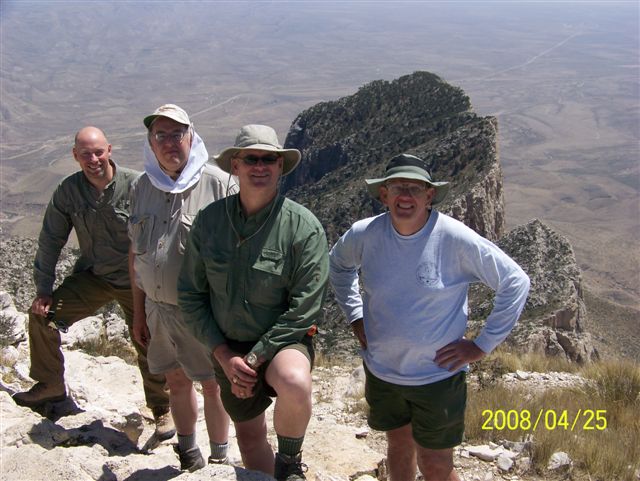I recently read a magazine article by Cornell professor Jim Bell who is the lead scientist on the Mars Exploration Rover Panoramic Camera team. The final picture of his article took my breath away:
This picture is so reminiscent of views of wagon ruts still visible on the Oregon trail in Nebraska and Wyoming! Pioneers on the American west a hundred and fifty years ago would feel right at home.
Well, they probably had a bit more oxygen, so lets not push the analogy too far.
Four hundred years after Columbus, American historian Fredrick Jackson Turner lamented the US Census bureau declaration that the western frontier was “closed”, all settled. In 1893 Turner presented a controversial paper which has come to be called “The Frontier Hypothesis”. His paper asserted that having a frontier was the most influential factor in American history. The Frontier Hypothesis has been debated ever since by historians who argue that other factors were more important in American development. But nobody argues that having a frontier wasn’t a huge factor, just what factor was biggest.
Turner wrote that having a frontier shaped the American character; always facing a challenge, inculcating innate optimism, relying on personal initiative and ingenuity, cooperating with scattered neighbors — all these things influenced who we are today.
Since the western frontier “closed” a century ago, America has become a world power, perhaps the only superpower, and has faced many other challenges. Today pessimism seems rampant and some quarters seem to revel in painting a dark future for America and humanity as a whole.
I don’t have the academic credentials to participate in the debate that Fredrick Jackson Turner started, but it seems at least he was close to the mark. Having a challenge, being forced to be innovative, having the hope that the future will be better than the present — all these things are important.
I’ve overused the quotation by Sir Edmund Hillary, but here it is again: “It is not the mountain we conquer, but ourselves.” Ed Hillary and Tensing Norgay were first on the summit of Mount Everest, so I think the beekeeper from New Zealand knew what he was talking about. Unlike Ed Hillary or Scott Parazinsky, I’ve never had the nerve or the opportunity to attempt the world’s highest mountain, but I have been on the summit of some lesser peaks:

Climbing a mountain changes the one who takes on the challenge. When you do something hard, like pioneer a new frontier or climb a higher mountain, you come back a different person. Generally a better person. More creative, more resilient, and more optimistic. After all, if you can climb the mountain, you know you can take on other challenges.
Collectively we need a challenge that is one for good, not for destruction or competition or rivalry. Not one for bragging rights. But a challenge that we can take pride in accomplishing.
This time when we pioneer a new frontier we have the opportunity to do it without all the ugliness that accompanied the last great age of exploration: slavery, racial and ethnic denigration, hideous destruction of native peoples, and wholesale damage to the environment.
Lets do it right this time.
But lets do it.
It is important for ourselves.
